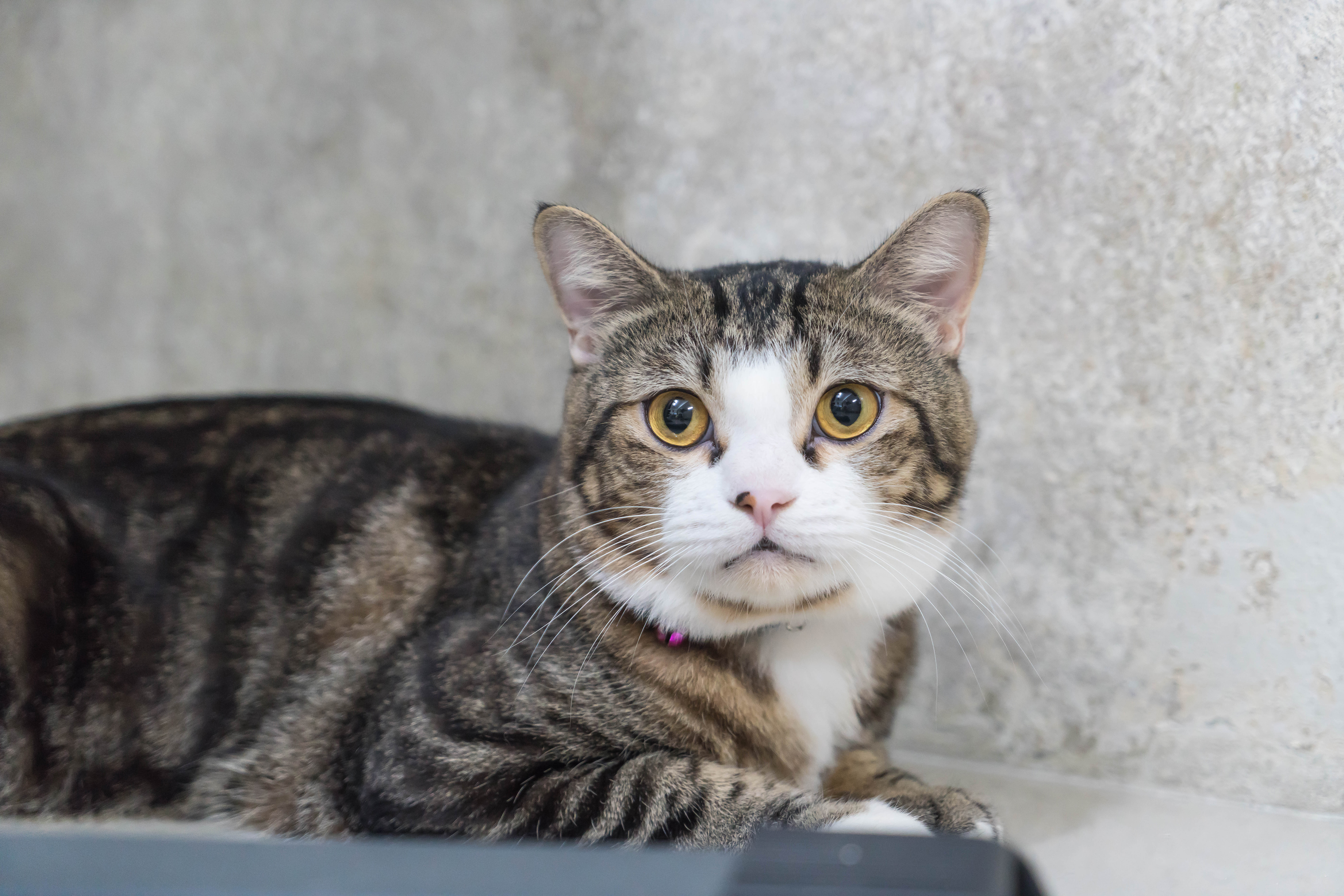
Remember your reactive, fearful or anxious dog IS NOT giving you a hard time, your dog IS having a hard time! – Jean Donaldson
If your dog or cat is performing unwanted behaviour that is repeated in certain situations or is dangerous or stressful for people, other animals or for the animal itself, he/she may suffer from a behavioural problem and may need professional help.
Possible behavioural problems with dogs:
- Aggression towards strangers/family members
- Aggression towards other dogs/other animals
- Leash reactivity
- Chasing people/objects
- Fear/phobias/traumas
- Excessive vocalisation
- Being destructive
- Hyperactivity/restless/attention seeking
- Separation problems
- House soiling
- Self-mutilation (excessive licking/nipping)






Possible behavioural problems with cats:
- Aggression towards strangers/family members
- Aggression between cats in the household
- Litter box problems
- Urine marking
- Destructive scratching
- Excessive licking
- Pica (compulsively eating inedible things)
What is wrong with my pet?
Problems with behaviour in pets are usually treated when their owners cannot cope with them any longer. Perhaps, the next door neighbour has complained about your noisy dog and is close to reporting it to appropriate authorities. Or perhaps you have come home to find another part of the furniture that has been destroyed by your dog while you were out. Maybe your cat has left a smelly surprise in your shoes, or on the sofa or the bed, and this it is not the first time. How frustrating! Maybe your dog challenges you every time you are near his food bowl and with his aggression escalating, you have no idea what to do…?
Living with a pet causing problems is emotionally draining, sometimes risky, sometimes expensive. Very often, in reality, your beloved pet is suffering from emotional distress and crying for help because it cannot cope with the situation any longer. Your pet speaks to you through its behaviour, it is the only way to let you know you how they feel. Animals are not spiteful, cats leave obvious messages in visible places for a reason and dogs act aggressively because all their previous signals have been missed. Animals are very sensitive, emotional beings, who encounter fear, grief, sadness, frustration, anger, pleasure and elation, just like people. This does not mean that we should treat our pets like people but watching their body language carefully will help to understand the underlying emotions and motivations.
Behavioural problems are understood based on up to date scientific knowledge and approached individually because there are no two the same dogs or cats in the world, and there is no universal method to fix a problem. There are many tools available on the market which claim to help desperate pet owners to stop dogs or cats from “misbehaving” but they work to suppress behaviour not to change the underlying emotions at the root of the behaviour. They can also have many long-term side effects, which might not be seen initially giving the illusion of being effective. Many of them simply are not ethic.
How do I work?
My approach is holistic and I use the MHERA model (Mood, Hedonic Set Point, Emotions, Reinforcement Assessment) pioneered by COAPE (Centre of Applied Pet Ethology) to treat behavioural problems in companion animals. This is done in 3 steps.
STEP 1 – Mood and Hedonic Set Point Assessment
Firstly, to help your pet I must find out what kind of personality they are and how they feel on a daily basis, whether its breed specific or ensuring all their welfare needs are being met. For example, if you have a problem with barking and lunging at other dogs but the dog is also anxious at home, this must be treated at first.STEP 2 – Emotional Assessment
Secondly, I will fully assess the problem, find the trigger, what behaviour is being performed and what emotional profit your pet gets from it. In other words how the animal is feeling before, during and after the undesirable behaviour.STEP 3 – Reinforcement Assessment
Thirdly, assess if there are any other factors, internal and external, that reinforce the undesirable behaviour .Let’s talk!
The 3 STEPS described above are applied within a behavioural consultation that takes place at your home or/and surroundings. The consultation lasts between 2-3 hours and we will discuss the problem and your pet. I will ask questions about its origin, diet and daily routine. In some cases, I will ask to record the undesirable behaviour (this will be advised). After the assessment, I will explain my findings, present the prognosis according to your expectations and we will set up a behaviour modification programme split into parts. I will leave you with instructions to implement the first part of the programme there and then. This will involve training and some changes in the routine. Within 3-5 working days, you will then receive a written report summarising what has been discussed and an appropriate report will be sent to your veterinarian. You will get my unlimited support via phone, email or Facebook messenger. A follow-up session is advised within 4-8 weeks (approx. 1 hour) to discuss the progress or make adjustments, and to implement the second part of the programme. Please note that follow-up sessions are usually not necessary with dealing with feline behavioural problems.
Together we are changing your pet’s emotions in order to change behaviour. This takes time and patience and with realistic expectations brilliant results can be seen but this is down to you to follow your programme fully.
Your vet may be involved
It is important that your pet is perfectly healthy to fight their problem and we need to ensure that your pet’s behaviour is not caused by medical issues such as pain or illness. Also, to take into account any on-going veterinary treatment when planning the behaviour modification programme. The cooperation between the behaviourist and the veterinarian is important to discuss the best solution to the behavioural problem with your pet and to make your life together happy and less stressful.
Prices for behavioural consultations start from £150 (+ travel costs) and are calculated individually
Follow-up sessions £30-£50 per hour (+ travel costs)
